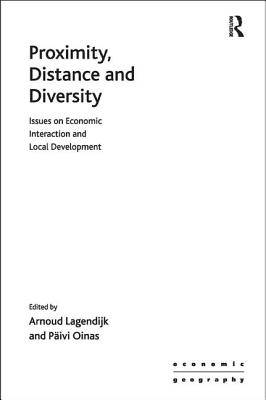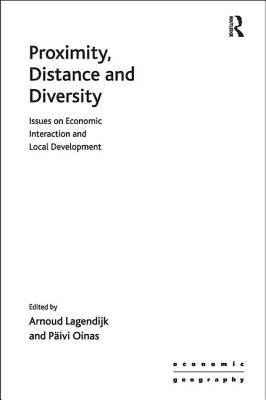
- Afhalen na 1 uur in een winkel met voorraad
- Gratis thuislevering in België vanaf € 30
- Ruim aanbod met 7 miljoen producten
- Afhalen na 1 uur in een winkel met voorraad
- Gratis thuislevering in België vanaf € 30
- Ruim aanbod met 7 miljoen producten
Zoeken
€ 62,45
+ 124 punten
Omschrijving
Bringing together a wide range of empirical studies from around the world (Sweden, Norway, Austria, Germany, France, UK, Israel, Russia, China, Taiwan, Argentina, Canada), framed in related contemporary theoretical frameworks, this book examines the question of the significance of proximate vs. more distant relationships for economic agents' performance and local economic development. While this question has been the subject of intense debates in recent years, it is obvious that proximity and distance are not explanatory factors as such. The book argues for the need to understand the aims of economic relationships, the nature of the regional environment in which they originate, and the scale at which they operate. The book suggests that the notions of diversity, innovativeness, maturity and multiple scales should be incorporated into the debates on the significance of proximity for economic performance.
Specificaties
Betrokkenen
- Auteur(s):
- Uitgeverij:
Inhoud
- Aantal bladzijden:
- 344
- Taal:
- Engels
- Reeks:
Eigenschappen
- Productcode (EAN):
- 9781138266544
- Verschijningsdatum:
- 25/09/2017
- Uitvoering:
- Paperback
- Formaat:
- Trade paperback (VS)
- Afmetingen:
- 156 mm x 233 mm
- Gewicht:
- 452 g

Alleen bij Standaard Boekhandel
+ 124 punten op je klantenkaart van Standaard Boekhandel
Beoordelingen
We publiceren alleen reviews die voldoen aan de voorwaarden voor reviews. Bekijk onze voorwaarden voor reviews.











